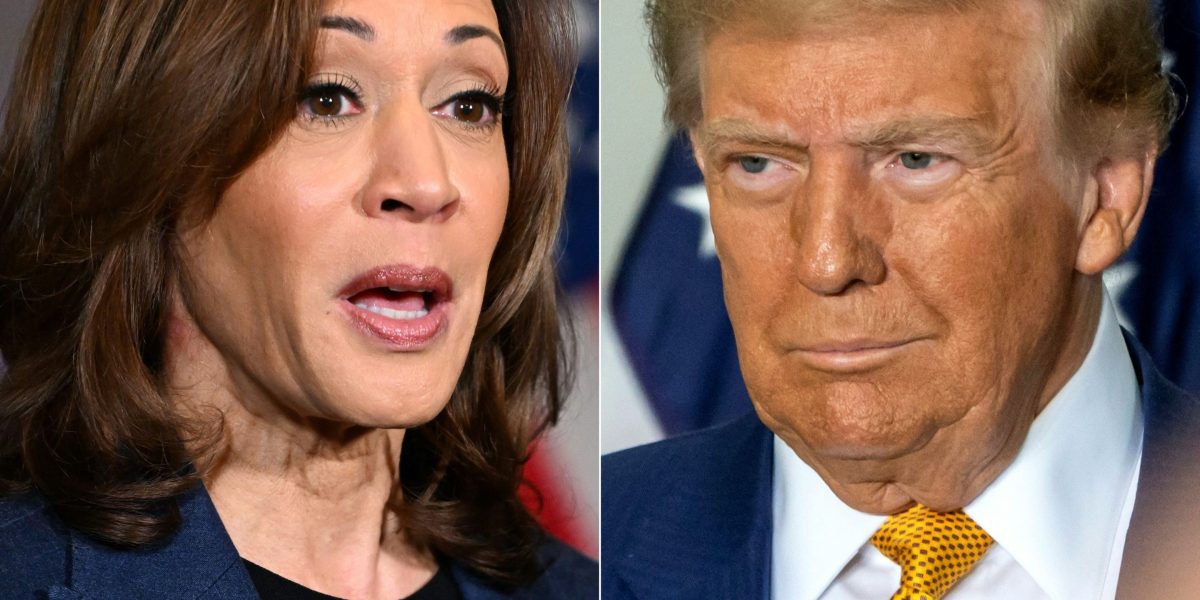
The 2024 election was filled with new and unprecedented developments in the history of American electoral politics: A sitting President was pushed out of the race by his own party. A mixed-race woman with Black and Indian heritage took his place roughly three months before Election Day. And their opponent, a former president vying for non-consecutive terms in office, was convicted of 34 felonies while on the campaign trail.
As the melodrama unfolded, the ups and downs of each candidate were tracked not only in the polls but for the first time in modern history by prediction markets.
Prediction markets are, for lack of a better term, just betting lines. Bettors can wager on who they think will win, by how much, and in which states. On Polymarket, which only takes bets in cryptocurrency, punters could even have put money on whether or not Taylor Swift would attend Vice President Kamala Harris’s rally on Monday. (She went to the Kansas City Chiefs game instead.)
The central question of whether Harris or former President Donald Trump would win the presidential election saw $3.2 billion Polymarket bets as of Election Day. The majority of bets went for Trump, with $1.3 billion wagered on the former president and $827 million on Harris. Polymarket did not respond to a request for comment.
The rise of betting markets signaled a step change in how elections were covered by the press and observed by the public. Pundits, analysts, and Wall Street investors started to factor in prediction markets to their election forecasts. The rationale was that they reflected people’s true feelings because they were putting their own money on the line. In reality that was only partially true: all betting lines fluctuate based on betting volumes as much as on the external factors that influence the race.
For example, in late July after President Joe Biden’s abysmal debate performance, Trump’s odds soared. However, a late-October rally in Trump’s odds was a result of aberrant betting behavior from just 1% of Polymarket’s users, according to Bloomberg.
The financial world was just as glued to the prediction markets as political types were. “Various assets have been impacted by the results from Polymarket,” Lukman Otunuga, senior market analyst at the online trading platform FTXM. “This was reflected across global markets with the “Trump trade” boosting the U.S. dollar, Bitcoin, and financial stocks in October. It seems investors have used prediction markets to get an edge before Election Day.”
In the last days of the campaign there seems to be evidence that the some of the Trump trades are unwinding. In part because the volatility in the former president’s election odds indicated he might lose, after being favored for much of the race.
In this election cycle the volatility of prediction markets provided a counterweight to the stability of the polls. Traditional voter polls kept showing a statistical dead heat. While betting markets fluctuated regularly—rising and falling because of Harris’s strong debate performance, Trump’s latest offensive remarks, and yes, even late, dramatic polling from star Iowa pollster Ann Selzer.
For some bettors (or are they investors?) the volatility is the appeal. In prediction markets bettors buy contracts that pay out $1 if the outcome they bet on happened. The price of that contract changes with the probability of the outcome. But bettors on these platforms can also sell contracts. So theoretically, if they’ve timed the market right, they can profit even without the outcome they bet on happening. For example, on July 21, the day Biden dropped out a Harris win was priced at 29 cents. A week later it was priced at 39 cents. A large enough spread to make a sizable, and guaranteed, profit if one were to have bought low and sold high.
Yet for all the truth-telling powers of the market claimed by prediction market boosters, they can still get tripped up: People make bad investments all the time. A heavily favored Trump may lose. The mouthwatering gains of an underdog bet on Harris may never materialize.
Join business‘s brightest minds and boldest leaders at the Fortune Global Forum, convening November 11 and 12 in New York City. Thought-provoking sessions and off-the-record discussions feature Fortune 500 CEOs, former Cabinet members and global Ambassadors, and 7x world champion Tom Brady–among many others.
See the full agenda here, or request your invitation.

